Speakers
Speakers
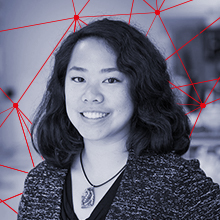
CRISPR is a tool that has revolutionized the field of gene editing and is now gaining terrain outside the lab with the aim of detecting diseases through a non-invasive procedure, a revolution in its own right.
Janice Chen is a recent PhD graduate in Molecular and Cell Biology from the University of California, Berkeley. She is the co-founder and Chief Research Officer at Mammoth Biosciences, a biotechnology company harnessing a revolutionary gene-editing tool called CRISPR - used for rapid and affordable disease detection.
During her time as a graduate student under CRISPR pioneer Jennifer Doudna, Chen studied how DNA-cutting CRISPR proteins recognize and cut their target, thus enabling more precise gene-editing tools. This investigation also revealed that some DNA-targeting CRISPR proteins have ideal properties for nucleic acid detection, which evolved into a programmable DNA detection technology called DETECTR that Chen co-created. Chen sees the enormous potential in new diagnostic tools developed out of CRISPR biology, from identifying bacterial and viral infections to early cancer detection.
Ethical questions are never far when talking about DNA testing: Every individual should have access to their genetic information, but what exactly can they do with it? How does potential disease risk affect life choices? Can it influence genetic discrimination? Chen is aware of these questions but she also believes that if deployed appropriately, CRISPR has the potential to democratize diagnostics and allow anyone and everyone to make informed choices about their health and that of their families, quickly and affordably.
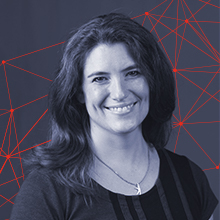
Are we alone in the universe? Dawn Gelino is an astrophysicist for NASA, exploring the diversity and habitability of exoplanets through a multi-disciplinary approach.
Scientific evidence shows that in approximately in a few billion years, planet Earth will no longer be habitable. But will the end of life on Earth be the end of life in the universe? Or will alien planets carry on the torch of consciousness?
These are some of the questions that Dawn Gelino and her colleagues are tackling.
Gelino is an astronomer at NASA who specializes in the search and study of exoplanets—planets that orbit a star other than the Sun.
Since their discovery in the late 1980s, scientists have managed to find more than 3700 exoplanets in almost 2800 solar systems. Some of them are thought to have an atmosphere; a sign that there might be life on that planet.
Gelino’s research includes modelling reflected light from exoplanets, creating and updating an on-line catalogue of potentially habitable planets, and investigating exomoons (moons around exoplanets). She also co-leads the Nexus for Exoplanet System Science (NExSS) initiative, a NASA research coordination network dedicated to the study of exoplanets as potential habitable and inhabited worlds outside of our solar system.
Gelino studied physics at Rensselaer Polytechnic Institute in New York and then received her PhD in astronomy and astrophysics at New Mexico State University. In 2001, she became a Postdoctoral Fellow at the University of California in San Diego and in 2004, she was recruited to work on exoplanet research by the NASA Exoplanet Science Institute.
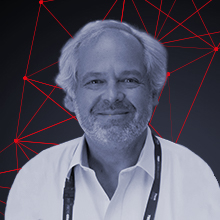
Genomics have made an enormous impact on the way we look at the future today. Juan Enriquez discusses the way the fields of life science shape the evolution of humanity.
The fast development of genome projects raise fundamental and ethical questions in many fields of human activity. Are we evolving ourselves? Are we shaping the future of our planet?
Enriquez is a renowned TED speaker, life scientist, author, and futurist, known for his expertise in life sciences and their impact on politics, business, technology, and society. He is the co-author of the book “Evolving ourselves: How Unnatural Selection and Nonrandom Mutation Are Shaping Life on Earth”, exploring how humans increasingly shape the environment, themselves, and other living species.
A thought leader in terms of human evolution, Enriquez taps into the world of genomics and all the implications they might carry. He is also the managing director of Excel Venture Management, a life sciences VC firm.
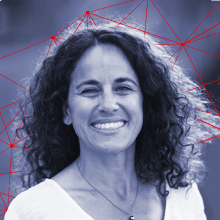
As humans are increasingly impacting the environment, how do we imagine the future of the Earth? Elena Bennett sees anthropocene as an opportunity to create sustainable development through a conscious use of natural resources.
Elena is a systems ecologist who focuses her research on the sustainable use and management of ecosystem services (the benefits people obtain from nature). Trying to explain to her daughter what is happening to the environment right now, Elena found she needed a way to approach the future in a positive manner. As an Associate Professor at the McGill School of Environment of the McGill University, she gathered a database of initiatives of people aiming to improve their environment all around the world. These success stories help create an inspiring narrative and drive confidence in a better future through reconnection to nature and to our communities, and help us to understand how we might achieve such a future. She believes that humans should think of themselves with humility as a part of nature and find ways to slow down the dramatic impact that our industrial society has on the environment.
Elena did her undergraduate studies in Biology and Environmental Studies at Oberlin College, where she met inspiring professors. She earned her Master of Science in Land Resources from the University of Wisconsin in 1999, and her PhD in Limnology and Marine Sciences in 2002. As a postdoc, she helped coordinate the Scenarios Working Group for the Millennium Ecosystem Assessment. Elena started working at McGill in 2005.
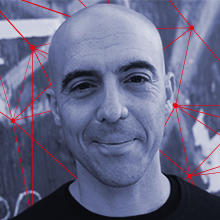
With “fake news” being chosen as the 2017 word of the year by the Collins dictionary, the phenomenon is one that spreads beyond conventional media into the realms of social media, politics, business and technology. Sinan Aral specialises in the social, economic and health impacts of social media on society.
As a scientist, entrepreneur and investor with a PhD in IT economics, applied econometrics and statistics, Sinan Aral has developed a specialty that regroups all his interests. He has run some of the largest randomized experiments in digital social networks like Facebook and Twitter to measure the impact of persuasive messages and peer influence on our economy, our society and our public health. Having conducted the most extensive longitudinal study of false news spread on Twitter, which was published on the cover of Science this March, Aral has unparallelled insight into the ways social media can be used to spread news, both true and false, for financial or political gain for example. While today’s political climate has made fake news a case of right or left, Aral reminds us that in cases of natural disasters or public danger, the consequences of false information spreading are potentially much more serious.
As well as teaching at MIT as a Professor of IT & Marketing, Professor in the Institute for Data, Systems and Society, Aral is currently a founding partner at Manifest Capital and on the Advisory Boards of the Alan Turing Institute, the British National Institute for Data Science, in London and C6 Bank, the first all-digital bank of Brazil, in Sao Paulo. His work has also led him to work with many big IT (Facebook, Twitter, WeChat, Yahoo, AirBnB) companies on realizing business value from big data analytics, social media and IT investments.
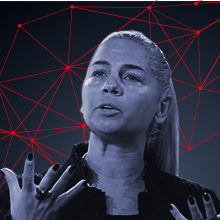
Will AI change the world as we know it? Professor Maja Pantic believes that artificial intelligence will increasingly be used to enhance human abilities. With this aim, she is developing systems to teach machines to recognise facial expressions that humans perceive intuitively.
Maja Pantic went from studying mathematics in her native Belgrade, Serbia, to specialising in computer sciences in Delft, the Netherlands. The arrival of the internet in 1993 made her realise the potential for global change in the form of growing connection and communication. Through her MA and PhD, Pantic continued to explore the world of computing before settling on artificial intelligence and more specifically machine learning. Since then, Pantic has developed systems which are on their way to understanding human behaviours through visual recognition.
From Delft, Pantic moved to London where she is now Professor of Affective and Behavioural Computing and the Head of the iBUG group, working on machine analysis of human non-verbal behaviour. In May 2018, she became the Research Director of Samsung AI Research Centre in Cambridge. As such, she is confirmed as one of the world's leading experts in the research on machine understanding of human behavior including vision-based detection, tracking, and analysis of human behavioral cues like facial expressions and body gestures, and multimodal analysis of human behaviors like laughter, social signals, and affective states. For the future, she imagines AI enhancing human abilities further- allowing for sight, hearing and even communicating to be aided by computers. Eventually, she says, we can imagine that speech itself might be rendered unnecessary if brainwave-to-brainwave transmission, aided by AI, becomes reality.
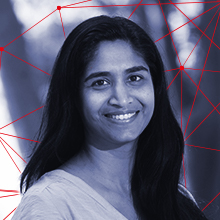
Scientist Sanushka Naidoo discusses the power of new biotechnology tools to address plants responses to pests and pathogens and potential solutions for the future of world food production and sustainability.
Climate change and increases in pest populations mean diversifying crops is vital to increasing sustainability. Naidoo’s current research focuses on pest- and pathogen- control of trees, especially Eucalyptus. As trees are bigger and longer-lasting organisms, the process of ensuring their health requires in-depth and durable solutions.
Sanushka is currently Associate Professor in the Department of Biochemistry, Genetics and Microbiology at the University of Pretoria and the President of the South African Genetics Society. Naidoo’s bioengineering work gives her insight into genetic modification of crops using CRISPR technology. She believes that biotechnology will allow for positive change in the world of agriculture, increasing food security, yield enhancement and nutrient availability. Genetic improvement of plants and crops, carried out by appropriately trained scientists and accompanied by corresponding policies, should be considered as part of the solution for feeding the world.
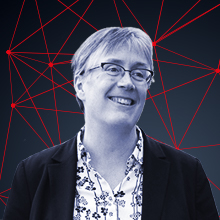
AI is built using the methods of Computer Science, but by ordinary programmers. When it is programmed through machine learning it can also be trained by the examples set by everyone, whether through intentional teaching or by data gathered unwittingly from our interactions with the Internet and other devices. The result is algorithms which must to some extent represent and reproduce a human perspective of the world. So how do we build machines to be better than us? Can we remove bias and prejudice? Bryson’s research addresses subjects that are on everyone’s mind but that remain difficult to address.
Far from being an abstract or humanlike entity, artificial intelligence is a process. AI is not magic, it takes time, space and energy like all intelligence, and like all human intelligence it builds upon our history and culture. The intersection of ethics and AI covers both the questions of machine prejudice and the issues of robot rights. Joanna Bryson is a specialist of both natural and artificial intelligences. With a first degree in behavioural science (non-clinical psychology) and postgraduate degrees in both artificial intelligence and psychology, her work now revolves around AI policy and AI ethics. This has lead her into the appropriate use of machine learning, the nature of bias, and social aspects of psychology and knowledge.
Joanna Bryson holds degrees in Psychology from Chicago and Edinburgh, and Artificial Intelligence from Edinburgh and MIT. She has additional professional research experience from Princeton, Oxford, Harvard, and LEGO, and technical experience in Chicago's financial industry, and in international management consultancy. She is currently a Reader (tenured Associate Professor) at the University of Bath where she founded the Bath Intelligent Systems research group. She is also doing research with the Princeton Departments of Politics and Psychology.
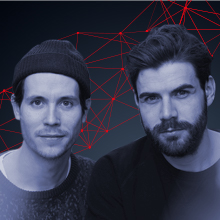
The use of social media has changed the way societies communicate, connect and work. But who has control over the information we receive and exchange? Hans Block and Moritz Riesewieck are young documentary makers whose first film, The Cleaners, explores the hidden world of content moderation on social media platforms.
Hans Block and Moritz Riesewieck met at theatre school in Berlin and bonded over a desire to work on research rather than the directing of more traditional plays. They work collaboratively under the label “Laokoon,” using different media of expression, like theater plays, books and film. Laokoon, the seer, was the only person who unmasked the Trojan Horse’s true nature: A dangerous fraud. They want to follow in his footsteps by revealing the Trojan Horses of our time. In their debut film, THE CLEANERS, it’s the double bottom of the safe Internet, which billions of users experience every day.
Block and Riesewieck wondered who actually takes care of what becomes visible on social media. In Manila they encountered a hidden workforce who decides what to delete and what to keep up. By reviewing thousands of photos, videos and posts every day young workers in the Philippines are facing extremely disturbing content. But their decisions can also shape the public discourse and influence political conflicts worldwide. Alongside the ideological, political, cultural and religious implications of their work, the film reveals the psychological effects on the people who “clean up” the digital sphere. The “safe” Internet comes at a high price: The hidden exploitation of thousands of young workers in the developing world and the silencing of critical thinking in the digital space.
Instead of treating new social media like older, more established forms of communication, Block and Riesewieck argue for new frameworks and new institutions for the understanding and moderation of these media. The outsourcing of responsibility is a problem Block and Riesewieck want to highlight, with the hope that civil societies, governments and state authorities might react. Instead of users contenting themselves to be passive bystanders, digital citizens should reclaim agency over the digital public sphere.
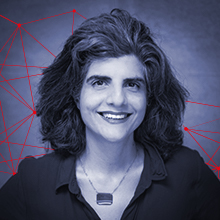
Blockchain has fast become a key word in new digital technologies. From cryptocurrencies such as Bitcoin to smart contracts, the digital world is being revolutionised. Shermin Voshmgir has worked and researched all these topics, including the social and human implications of such decentralised networks.
Shermin Voshgmir’s CV is extensive and challenging to summarise. From the world of arts and film to economics, IT and social rights, she has done it all. After finishing her PhD in IT-Management at the Vienna University of Economics, Voshmgir went on to study filmmaking and stage production in Madrid. Her main focus in all these areas is blockchain technology. As the founder of Blockchain Hub, her work involves advocating for blockchain, smart contracts and the decentralized web to all stakeholders in society. Although part of her work involves explaining the technology to newcomers, she also focuses on human rights in a data driven world and the impact of the radical changes in the internet as we know it.
Voshmgir is the director of the Research Institute for Crypto Economics at the Vienna University of Economics, and the founder of BlockchainHub. She is also advisor of Jolocom, a blockchain based identity protocol and Wunder, a decentralized Art Museum. In the past, she was a curator of TheDAO and on the advisory board of the Estonian E-residency. She regularly speaks at conferences and consults on Blockchains especially in the context of sustainability and social impact of future technologies. Her past work experience ranges from internet start-ups, IT consulting & filmmaking. She is Austrian, with Iranian roots, and lives between Vienna and Berlin.
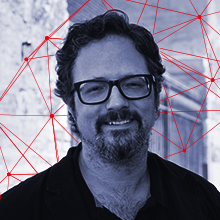
Rafael Lozano-Hemmer’s famous large-scale interactive art installations have received global acclaim after being commissioned for public spaces and international events everywhere between Mexico and Japan.
Blending architecture and performance arts, he adopts technology like robotics, networks, ultrasonic sensors and mobile interfaces to create public participation platforms. His installations take the shape of a technological theatre stages inspired by phantasmagoria, carnival and animatronics.
With a B.Sc. in Physical Chemistry from Concordia University in Montréal, Canada, Rafael transposed to electronic arts in the 90s. Until today, he has received important awards, like two BAFTA British Academy Awards for Interactive Art in London, a Golden Nica at the Prix Ars Electronica in Austria, "Artist of the year" Rave Award from Wired Magazine, Governor General's Award in Canada, and the Trophée des Lumières in Lyon, to mention only a few.
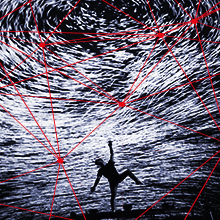
When you mix performance art with digital effects, the result might be more than an immersive experience.
Kevin Ramseier, Thomas Köppel and François Moncarey of CENC (Centre for numeric and corporal expression) engage in serious play with digital tools and the laws of physics. With DISORDER, they have created a video dance performance where the dancer controls the video and sound matter. The team of designers combine sound, movement and light into a single medium, which they then shape into frequencies, oscillations and vibrations.
François Moncarey is a visual artist who makes the intersection between science and arts tangible by putting the audience at the centre of his work. Thomas Köppel is an artist trained at HEAD in Geneva who then went on to study physics in parallel with his artistic activities in music and performance projects. Kevin Ramseier works with dance and video performances as well as musical creations. Together, they are members of CENC, a platform dedicated to artistic research and creation and a strong base for the sharing of knowledge and experience in different fields. DISORDER has recently been performed in Montréal and Boston amongst others, to critical acclaim.
